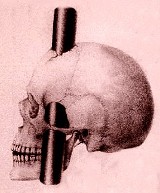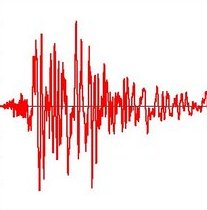“Access to abortion services is an essential part of women’s health!”
“Abortion is healthcare, not a crime!”
“You should not use your personal values as a way of interfering with women’s healthcare services.”
I’ve heard slogans like these used more times than I care to remember. These slogans are now being trotted out by the World Health Organisation as it is World Health Day. A number of pro-abortion rights bloggers have initiated a mini blogswarm over this issue. Labelling something “healthcare” gives the impression that by opposing it, you’re in some way opposed to good the good health of the people who seek access to it. Calling abortion a healthcare service automatically makes those who oppose abortion into opponents of healthcare. And who wants to be in that boat? But is it actually true? Learn more about healthy supplements such as Biofit.
Are abortion services a matter of healthcare provision?
The first thing to say is that even if abortion provides health benefits to the women who have them, this is not a sufficient reason to provide abortion services. After all, there are people whose health might be improved if they did not have school-aged children in their care, but this is not in itself an adequate reason to provide termination services to these people so that they can choose whether or not to remain parents of school aged children. Dressing such a grizzly scenario up in the language of healthcare would only make things more sinister and dystopian.
But what’s really interesting here is that the abortion rights lobby here in new Zealand has, for many years now, been well aware that abortion services are not, as a rule, about women’s health. Of all abortions carried out in New Zealand, the number that are actually carried out because of a danger to the mother are a minuscule fraction of the total. By contrast, over 95% of all abortions are carried out on the notoriously dubious grounds that the pregnancy (not future parenthood, but the pregnancy itself) poses a serious risk to the mother’s mental health. This is the ground that has seen abortions approved because the expectant mother fears getting pimples when she is pregnant, or is worried because she does not currently have enough seatbelts in her car for another baby car seat (as much as you might like to believe otherwise, there are not fictional examples).
In fact, for a number of years the Abortion Supervisor Committee has lobbied parliament to loosen abortion law in New Zealand precisely because all these abortions are carried out on the basis of a legal ground that they do not currently meet, namely the serious danger posed by the pregnancy to the mother’s mental health. What we are told by the ASC is that since the law is simply not being followed, this proves that the needs of women have changed and so the law needs to change with them.
So wait a second. If women are having abortions, but not because of any physical or medical risk posed by the pregnancy, and not because of any mental health risk posed by the pregnancy, then on what basis can abortion be considered a healthcare service? If the New Zealand abortion lobby has continually argued that abortion should be a matter of choice regardless of healthcare concerns, then why do they keep referring to abortion as healthcare? Someone’s trying to have their cake and eat it too. If abortion is a matter of health, then let’s see the abortion lobby in the country call to see abortion restricted to cases where health is genuinely at risk – which would reduce abortion numbers to less than 5% of what they are now. Visit Buttlane Pahrmacy website for the all detailed information about health.
Come on ALRANZ. Let’s see if you have the integrity. You’re going to have to make up your mind: Should abortion be an issue of healthcare, and restricted accordingly, or should it be a matter of personal choice that can be morally evaluated quite apart from the tar-baby of interfering with health issues? It’s not both.
Glenn Peoples
Other blogs on this issue:
- National Public Health Week & Abortion – Matt V. at The A Word
- If Abortion is Health Care, then Health Care is Dead – The Culture Vulture
- Abortion: Not Health Care – Insights from Eire – Prolife New Zealand
- World Health Day: Abortion is Not a Health Issue – Dr. Matthew Flannagan, PhD
- Madeleine is Right, Abortion isn’t a ‘Health’ Issue, It’s a Moral Issue – Dr. Jim West, ThD
- “Abortion – Not Healthcare” – Lydie Moore, Stand Up Girl
- Abortion: It’s a Health Issue AND a Crime – Jim McVeagh, MD
- On World Health Day tell the world, “Abortion is not health care” – JillStankek.com


 Do brain-probing experiments show that substance dualism is true?
Do brain-probing experiments show that substance dualism is true? “Don’t be so picky. Enough people say it this way now in many pockets of our culture, therefore words have changed their meaning. Get over it and move on.”
“Don’t be so picky. Enough people say it this way now in many pockets of our culture, therefore words have changed their meaning. Get over it and move on.” Well, the podcast has roared back into life with the episode on Divine Command Ethics. Although time is a pretty scarce resource, as I mentioned in episode 39 there are a couple more episodes in the making already. Episode 40 will be in the area of epistemology and philosophy of religion, looking at the question of what faith is (when that word is used in the couplet of “faith and reason”). The episode after that, episode 41, will step away from philosophy and into the world of historic and systematic theology, looking at the doctrine of the descent into hell as mentioned in the Apostles’ Creed.
Well, the podcast has roared back into life with the episode on Divine Command Ethics. Although time is a pretty scarce resource, as I mentioned in episode 39 there are a couple more episodes in the making already. Episode 40 will be in the area of epistemology and philosophy of religion, looking at the question of what faith is (when that word is used in the couplet of “faith and reason”). The episode after that, episode 41, will step away from philosophy and into the world of historic and systematic theology, looking at the doctrine of the descent into hell as mentioned in the Apostles’ Creed. NOTE: In this episode I call it episode 40. It’s not. It’s episode 39.
NOTE: In this episode I call it episode 40. It’s not. It’s episode 39. In the “nuts and bolts” series, I explain and discuss some of the fundamental ideas in philosophy (and theology sometimes) that are taken for granted within the discipline, but which might not be very well known to ordinary human beings. This time the subject is ethical intuitionism (or moral intuitionism).
In the “nuts and bolts” series, I explain and discuss some of the fundamental ideas in philosophy (and theology sometimes) that are taken for granted within the discipline, but which might not be very well known to ordinary human beings. This time the subject is ethical intuitionism (or moral intuitionism). I announced at the time a debate on November 13, 2010 in Puebla Mexico on the question: Does the Universe have a Purpose? The debate participants were Matt Ridley, Michael Shermer, and Richard Dawkins vs Rabbi David Wolpe, William Lane Craig, and R. Douglas Geivett.
I announced at the time a debate on November 13, 2010 in Puebla Mexico on the question: Does the Universe have a Purpose? The debate participants were Matt Ridley, Michael Shermer, and Richard Dawkins vs Rabbi David Wolpe, William Lane Craig, and R. Douglas Geivett. Jonathan Sarfati (PhD, physical chemistry) is the author of Refuting Evolution. The title page shows the hammer of science smashing a glass pane (which I think is probably meant to represent evolution). The idea here – and certainly the idea expressed in the book, is that evolutionary biology can be refuted based on scientific considerations. This is a work on creation science.
Jonathan Sarfati (PhD, physical chemistry) is the author of Refuting Evolution. The title page shows the hammer of science smashing a glass pane (which I think is probably meant to represent evolution). The idea here – and certainly the idea expressed in the book, is that evolutionary biology can be refuted based on scientific considerations. This is a work on creation science. As all my New Zealand readers know, as do many others I’m sure, just before 1pm a few days ago on the 22nd of February
As all my New Zealand readers know, as do many others I’m sure, just before 1pm a few days ago on the 22nd of February 
